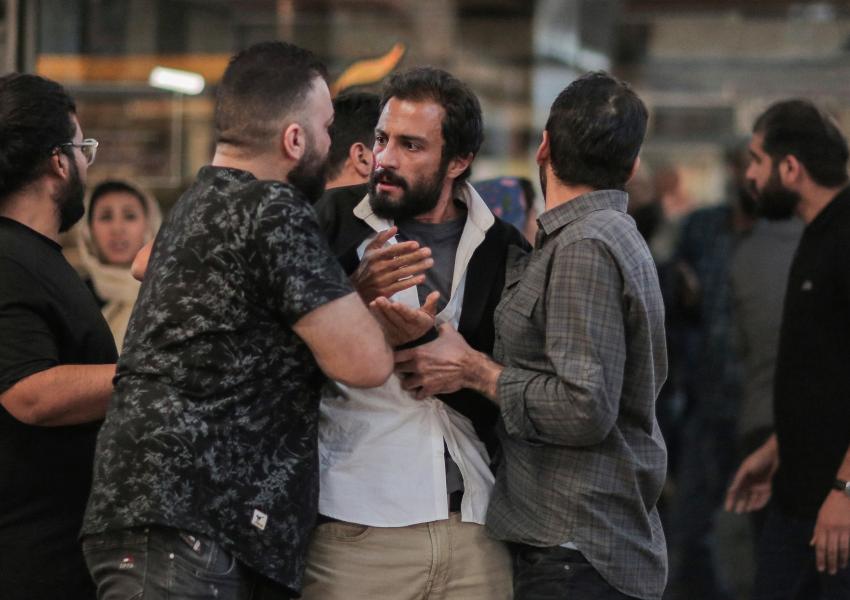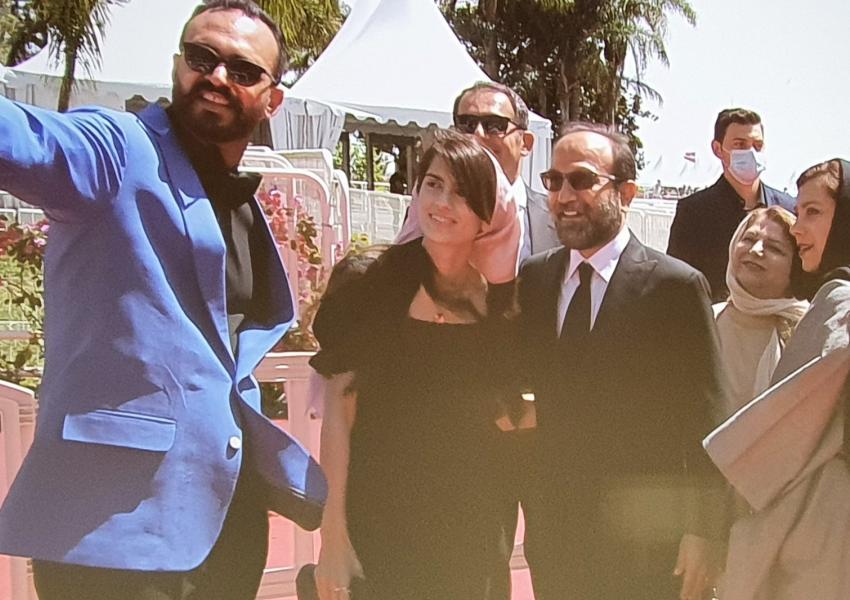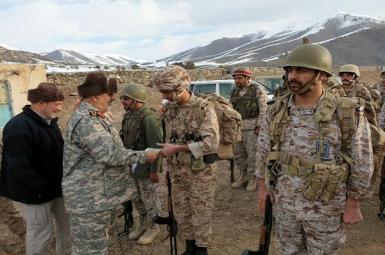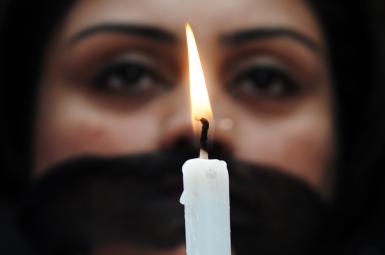
Iranian Filmmaker's Attempt To Sound Apolitical Stirs Controversy In Cannes
A prominent Iranian filmmaker and his latest movie's presentation at the Cannes Film Festival has led to a controversy among reporters and filmmakers.
As twice Academy Award winner Asghar Farhadi's latest film, A Hero, was screened at the festival during this week, his news conference and red-carpet appearance with his actors, including his daughter, attracted a lot of attention on Iranian social media and in international film publications.
Farhadi's daughter, Sarina who is one of the actors in the movie, attracted the attention of the Iranian opposition abroad for her style of “lite” hijab outside the country, which has been criticized as a means of whitewashing and downplaying the Iranian government's pressure on women to observe the compulsory hijab.
There was nothing particularly wrong with Sarina's hijab, except that her head scarf did not in fact cover her hair in the way the Iranian government imposes on women, including actresses. Social media users charge that the way she dressed was an attempt to clear the Iranian regime of charges of imposing compulsory hijab on all women including foreigners who visit Iran.

But this was not the main problem Farhadi encountered in Cannes. At the news conference after the screening of his movie, an Babak Ghafouriazar, an Iranian reporter at US-funded Radio Farda asked why Farhadi in his movies does not address volatile social issues that characterize social life in Iran. He also asked whether he knew that his leading actor Amir Jadidi had earlier appeared in a movie that was funded by the Iranian Intelligence Ministry. The ministry and the IRGC Intelligence organization have been active in film production for a few years now to influence hearts and minds.
To the first question, Farhadi answered that he was an artist and not an activist, so he approached social issues indirectly. He further explained that he presents the social and political context of the story as drama rather than issuing a direct statement.
On his lead actor's background, he said that he does not perform background check on his colleagues, but instead chooses them based on their capability to carry the message across and to play the characters in a convincing way.
It was mainly Farhadi's professionalism plea that elicited reactions on the part of critics who likened his actor to Nazi murderer Adolf Eichmann who claimed he acted based on his duty.
Another Iranian filmmaker Mohammad Rassoulof denounced Farhadi's statement and tweeted that "If we lose our sensitivity and argue that an actor is an actor, then we turn ourselves into objects. With your argument, Mr. Farhadi, Eichmann was just a soldier who fulfilled his duties."
The Iranian reporter's question was based on Farhadi's remarks in an interview with the prestigious movie publication the Variety, in which while discussing "social media manipulation in Iran," Farhadi had said that the Iranian regime was "repressive".
Like most Iranian politicians who easily and frequently claim that their statement was distorted by the media as soon as they think what they said might entail a punishment by the regime, Farhadi too claimed that his words were mistranslated by an interpreter.
The controversy continued when social media users began to support this or that side of the argument. An Iranian activist who turned out to be a former IRGC Intelligence operative based on his interview with a US-based Persian network, accused the reporter of acting like an interrogator. Others exposed the man's identity.
Ironically, while a major theme of the movie is about the way social media influences society, the controversy about Farhadi's statement played out mainly on social media.
Two of Farhadi's previous films, A Separation (2011) and The Salesman (2016) have won academy awards. A Hero, is his first film made in Iran after a few years during which he made films in Spain and France.








